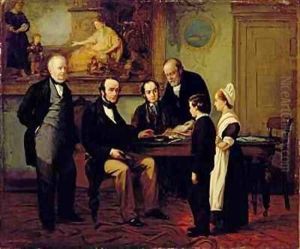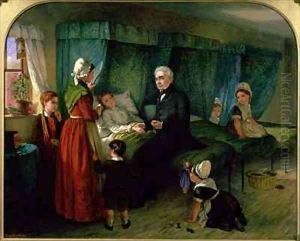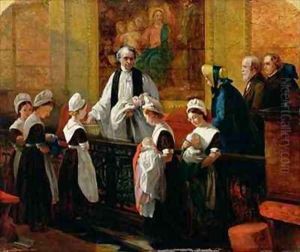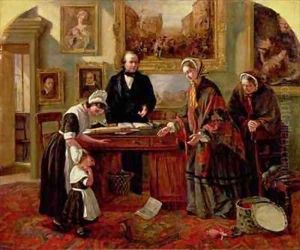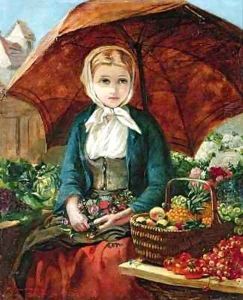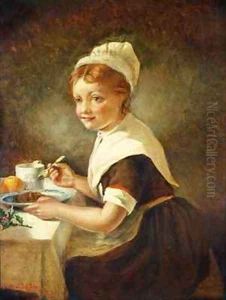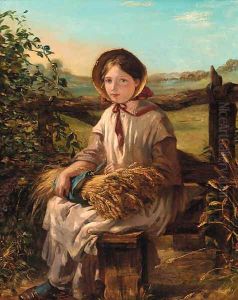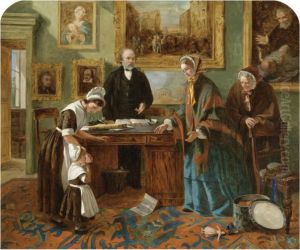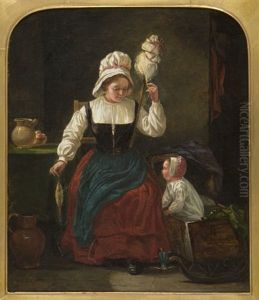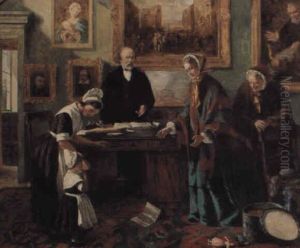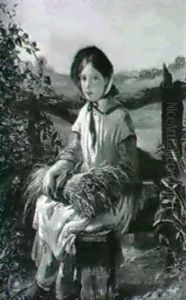Emma Brownlow Paintings
Emma Brownlow King was a Victorian painter born in London, England, on 2 April 1822. She was the daughter of John Brownlow, who was a philanthropist and the secretary of the Foundling Hospital, a charitable institution founded in 1739 for abandoned children and orphans. Growing up with such close ties to the Foundling Hospital significantly influenced Emma's subject matter as an artist. She is best known for her works that depict scenes from the life of the foundlings and the operations of the hospital.
Emma's artistic talent was recognized early on, and she was encouraged to develop her skills. She was primarily self-taught, but her proximity to the art collections of the Foundling Hospital and the tutelage she received from artists associated with the institution undoubtedly shaped her artistic development. Emma's work was deeply empathetic, often focusing on the emotional experiences of the children and the benevolence of the caregivers at the hospital. She painted a series of scenes from the Foundling Hospital that served both as a historical record and as a means to promote the charity's work. Her paintings were used by the hospital to raise awareness and funds.
Brownlow exhibited her work at the Royal Academy and other venues, gaining a degree of recognition and respect from the art community. Despite the challenges faced by female artists at the time, Emma's connection to the Foundling Hospital and her unique subject matter provided her with a platform that many of her contemporaries lacked. She married John King in 1854, but continued to paint throughout her life.
Emma Brownlow King's works are significant for their social historical value as well as their artistic merit. She documented an aspect of Victorian society that was often hidden from the public eye, and her paintings offered a compassionate and dignified view of the less fortunate. She passed away on 16 July 1905, leaving behind a body of work that continues to be of interest for its portrayal of Victorian philanthropy and care for children.
